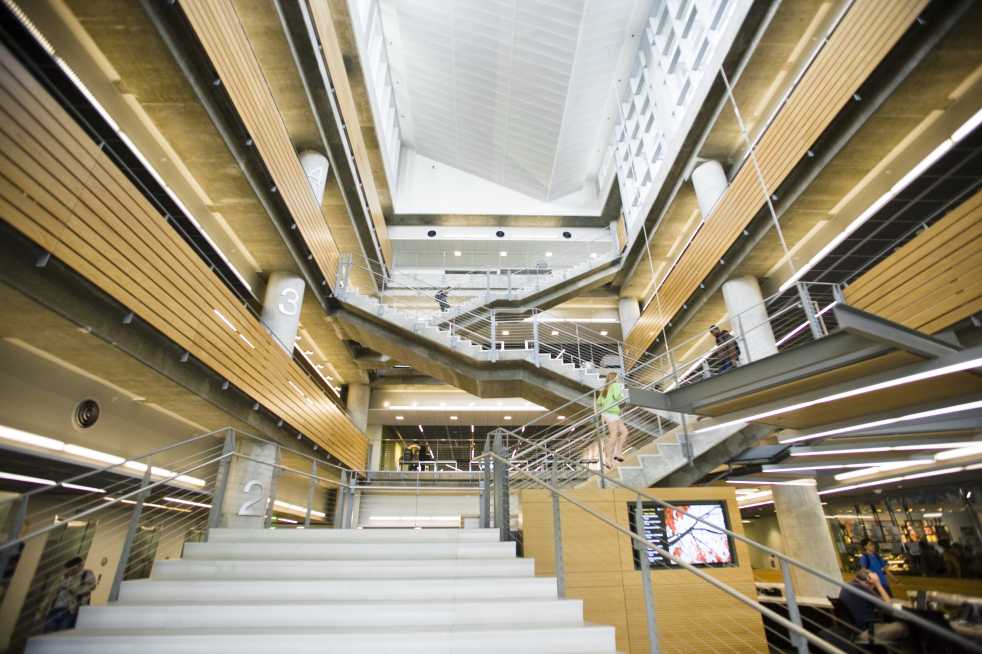Last month, the Board of Regents announced what they call “a bold Strategic Plan” for the 31 colleges and universities in the University System of Georgia (USG), according to a press release. A major theme throughout the plan was the need to sustain and improve college affordability.
One aspect that the report focused on in terms of cost was operational efficiencies, especially the use of buildings in the system. According to the plan “USG must manage its current physical space far more effectively, build fewer new buildings and invest in repurposing current facilities to serve the modern student more efficiently.”
To efficiently use available space, Tech uses an event management system that considers the number of students in a class and the available number of seats.
“[We are] responsible for the scheduling of 165 centrally scheduled classrooms so what we try to do is right-size the class with the projected enrolment so you don’t have a class of 23 people in Clough Commons auditorium,” said Howard Wertheimer, Director of Capital Planning and Space Management at Tech.
“[The] space typologies are slightly different but in our case there … we want to maximize the space that we have before there’s a call to build new,” Wertheimer said. “We want to be very sustainable and thoughtful and good stewards of the resources that are available regardless of where they might come from.”
In an effort to maximize space usage, the USG performed a Space Utilization Initiative to study the use of buildings at Georgia public universities. A major finding of the report was that space on college campuses could be used much more efficiently to maximize the use of buildings and classrooms. It acknowledges that this requires strong leadership as solutions would disrupt the deeply imbedded practices of the universities.
According to the report, higher education “has focused on quantity over quality and on solo-driven projects that do not always represent the real needs of the institution as a whole. We can, and must do better.”
One important metric used by the report is the classroom metric – the ratio between weekly student contact hours (the weekly room hours multiplied by course enrollment) and the total available capacity. Tech’s classroom metric was 0.431 compared to 0.846 at North Georgia and 0.307 at UGA. The report identifies scores less than 0.500 as campuses that “should seek opportunities for more efficient space use.”
“We do pretty darn well with [the report],” Wertheimer said. “Is there room for improvement? Absolutely.”
In the Strategic Plan, the USG also identifies reducing amenities as a way of keeping costs down for students.
“Overall costs to students and families must be mitigated by affordable degree options and through continuance of a cost effective, access tier of colleges,” the plan said. “[We] will accomplish this goal through a rigorous, focused commitment to educating students while minimizing some of the amenities that increasingly define, but also increase the cost of, a college education.”
In response to a question at the annual Institute Address, President Peterson addressed the need for a new student center weighed against the other needs and cost restraints of the university.
“We have a marvelous student center for 7,000 students,” Peterson said. “The problem is we have 21,000, almost 22,000 students. It’s a student center that needs to be expanded … It’s on our list [but] I have to be honest, it’s not on the top of the list …..”
Some other aspects of the Strategic Plan related to academic standards, degree completion, economic development, research and innovation in higher education. The plan also emphasized international education and on staying relevant in a rapidly changing world.
“Public higher education has changed dramatically in the last ten years,” the report said. “Concerns about affordability are greater than ever, and pressures on quality continue to increase. Questions are raised about the value of getting a bachelor’s degree at the same time data show that the jobs of the future will require higher levels of education…. [O]ther large industrial nations, like China and India, are threatening the long-held U.S. leadership position in higher education and number of college graduates. To compete economically, Georgia must raise the attainment levels of its citizens.
No representatives from the Board of Regents could be reached for comment.
